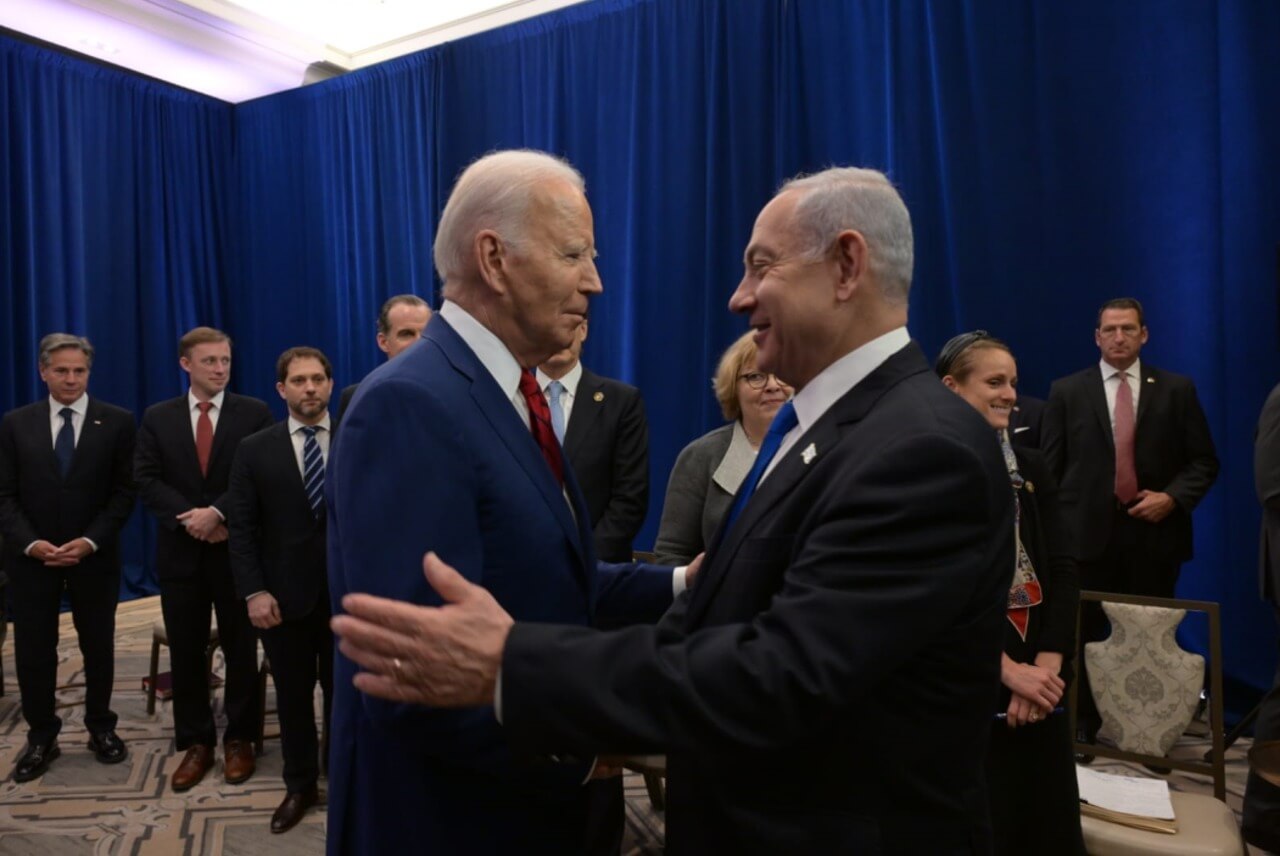Israel working with U.S. to develop Saudi uranium enrichment proposal, report Says
According to the Wall Street Journal, the operation would be U.S.-run, though Israeli Prime Minister Benjamin Netanyahu directed top nuclear and security experts to partake in negotiations

Graphic by Angelie Zaslavsky
This article originally appeared on Haaretz, and was reprinted here with permission. Sign up here to get Haaretz’s free Daily Brief newsletter delivered to your inbox.
Israel is working with the U.S. on a proposal for a uranium enrichment operation in Saudi Arabia as part of the normalization deal between the two countries, the Wall Street Journal reported on Thursday.
According to the report, the operation would be U.S.-run, though Israeli Prime Minister Benjamin Netanyahu directed top nuclear and security experts to partake in negotiations.
The deal would make Saudi Arabia the second country in the Middle East, after Iran, to openly enrich uranium, the report says, adding that currently, Israel is the only country in the region with nuclear weapons, though it does not publicly admit it.
Should the U.S. and Israel agree to allow uranium enrichment in Saudi Arabia, it would represent a massive change in decades of a policy aimed at preventing Middle Eastern countries from doing so, the report notes.
The Journal quotes Mark Dubowitz, chief executive of the Foundation for Defense of Democracies, a think tank in Washington that opposes the proposal. According to Dubowitz, “Israeli support for Saudi enrichment would represent a radical policy shift for a country that has opposed nuclear proliferation in the Middle East since inception, and for a prime minister who has devoted his career to opposing Iranian enrichment.”
The civilian nuclear program on Saudi soil is one of the concessions the kingdom is requesting in exchange for normalization with Israel, though other concessions are expected – including to the Palestinians as well as U.S. security guarantees.
Saudi Arabian Crown Prince Mohammed bin Salman told Fox News in an interview on Wednesday that his country was moving closer to normalizing relations with Israel, but that the Palestinian issue remained important to negotiations.
Netanyahu’s instruction for Israeli officials to begin negotiations is the clearest sign yet that the Israeli prime minister is willing to allow Saudi Arabia to advance its nuclear ambitions, even though critics say such a move could accelerate an arms race in the region.
U.S. officials cautioned that although the Biden administration is working on a proposal for the uranium enrichment system in Saudi Arabia, they are also exploring other alternatives.
Biden’s and Netanyahu spoke of the issue on the sidelines of the UN General Assembly on Wednesday and one senior Israeli official told the Journal that “On the nuclear issue, we’ve seen completely eye to eye from the start,” adding that they would want significant safeguards on a Saudi nuclear enrichment program.
The Journal states that according to experts, there might be safeguards that could be put in place to remotely shut down the facility. However, it notes that experts say there is no foolproof system that can’t be tampered with.
According to the Journal, U.S. leaders have long resisted efforts by Middle Eastern countries to enrich uranium, with the deal the U.S. signed with the United Arab Emirates in 2009 precluding the Gulf nation from enriching uranium on its own soil being known as the gold standard. Thus, the Journal notes that offering Saudi Arabia more than that would set a new bar.
Some Israeli leaders worry that U.S. support for a civilian nuclear program in Saudi Arabia could pave the way for Riyadh to develop nuclear weapons, which the Saudi crown prince has said he would do if Iran does so first. And it could open the door for the U.A.E. to seek similar approval.
Some Israeli leaders worry that such a program could pave the way for Riyadh developing nuclear weapons. The report quotes Israeli opposition leader Yair lapid as telling Israel’s Channel 12 last month that “Israel can’t agree to uranium enrichment in Saudi Arabia, because it endangers its national security,” and that “It would harm our campaign against Iran. It would lead to a regional nuclear-arms race.”














